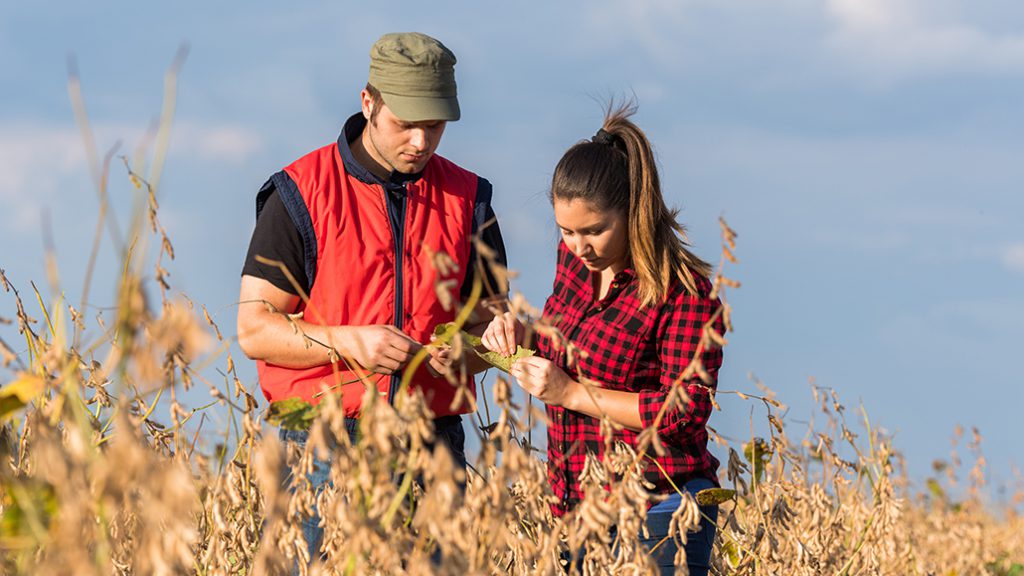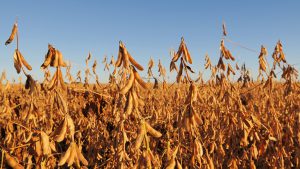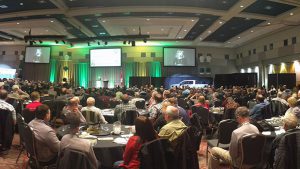Trust in agriculture: the next generation
FOSTERING RELATIONSHIPS WITH MILLENNIALS

WHILE CANADA CURRENTLY has a strong reputation for agriculture, the perception of agriculture is changing as we see a shift in the consumer demographic.
“The millennial generation is huge and some of the countries that have the largest populations of millennials are the top customers for agriculture – India, China, the U.S., Asia, Brazil,” says Michelle Jones, president of the Montana Grain Growers Association. “Millennials are already influencing marketing decisions. They are influencing how agriculture is seen on social media. I think it’s an essential segment to target and to try and understand so we can tailor our messaging to appeal to them.”
Jones participated in a panel discussion on whether millennials distrust big agriculture during the 2018 Canadian Global Crops Symposium. The panel was led by Vance Crowe, the director of millennial engagement for Monsanto, and also featured Abbey Sharp, a registered dietitian and founder of Abbey’s Kitchen, and Becky Parker, projects and partnership strategist for AgScape. The conversation centered around what influences millennials, how they get their information, and how that leads to their trust or distrust in agriculture.
Jones uses infographics to share interesting facts about grain production online through Twitter @bigskyfarmher and blog (https://bigskyfarmher.com/). She finds this type of post is effective because it’s easily shareable and the facts she uses are relatable. Jones often uses her own photography in her posts and says a pretty picture can go a long way in getting people’s attention.
MESSAGING
As a social media influencer, Sharp has also learned how to tailor her message to appeal to a broad audience through YouTube and her blog (https://www.abbeyskitchen.com/). She has learned that including key words such as vegan, keto, or gluten free will get her more views – even if her view of these current food trends aren’t what people are expecting to hear.
“People are always looking for that quick fix. They don’t want to believe that being healthy is about balance and moderation. They want black and white, they want rules, and they want a meal plan that they are never going to stick to,” says Sharp. “It’s my job as a registered dietitian, as someone who is science trained, to look at the body of research rather than cherry pick information. It’s challenging for a lot of people who don’t know how to interpret scientific research because nutrition science is so complicated, it’s always changing, it’s not black and white. Convincing people that research and science is something to pay attention to is my biggest challenge.”
TRENDS
Another trend that Sharp has seen amongst millennials is the importance of sustainability and learning about food and where it comes from. However, she says many of them have ideals that they don’t necessarily put into action.
“Millennials are very much interested in learning about food, but it’s very much a show to them. They don’t want to be in the garden or cooking the meals, they want it to be fast and convenient, and watch the Food Network,” says Sharp. “They talk about the importance of sustainability, or organic, or what they perceive as more healthy; but when push comes to shove and they are making minimum wage and paying for rent, I don’t think it’s something that they would prioritize at the end of the day.”
Jones has a similar perception of the millennials she encounters online and in real life.
“In a lot of cases millennials want sustainable and organic until they find out that kind of thing can be really expensive,” she says. “But the more educated and the more money they make they will lean in that direction.”
That’s why she feels it’s important that farmers help tell a positive agriculture story – no matter what kind of farmer they are. One of the biggest set-backs she sees is when farmers themselves contradict each other online because a common production practice in one region isn’t utilized in another. She says this causes confusion and helps fuel any initial distrust someone may have had about agriculture.
“We need to be cognizant that we are just the same as other consumers outside of the sphere we know and we need to be very careful what message we put out there. It doesn’t do consumers or our industry any good to further confuse them or to pit one farmer against another.”
EARLY EDUCATION
And while it is important to be aware of how we are communicating to millennials, Parker notes we also need to be reaching out to the next generation and do a better job of telling our story to them so they are aware of where their food comes from. She studied generation Z and their connection to the agri-food sector as part of her Nuffield Canada agricultural scholarship. Parker found that a lack of connection to the farm and a lack of awareness about the opportunities that exist within agriculture has led to a lack of interest in pursuing an agri-food career.
“Giving educators a pre-packaged resource linked to their curriculum is the way to get the information into the classroom and that’s what our ‘Ag in the Classroom’ program does,” says Parker. “But I think we can do a better job looking at more hot topics. Let’s put GMO on the table and talk about it in the classroom because – why not? There are a lot of angles to examine there, there are a lot of skills we can build in students by encouraging critical thinking, research skills, and communication.”
Parker says she has millennial friends who don’t understand the impact the agriculture and agri-food sector has on the Canadian economy and many don’t associate roles such as accountants and technology developers as being viable positions within the industry.
Sharp has had similar issues convincing people their views on agriculture and food might need to be expanded.
“People are always going to disagree with you when you are saying something that is powerful. I would rather make statements that people are going to talk about and that people are going to share, whether it’s good or bad, because these are the things at the end of the day that rise you up in the algorithm,” says Sharp. “The point of making content is to have people see it.” •




























